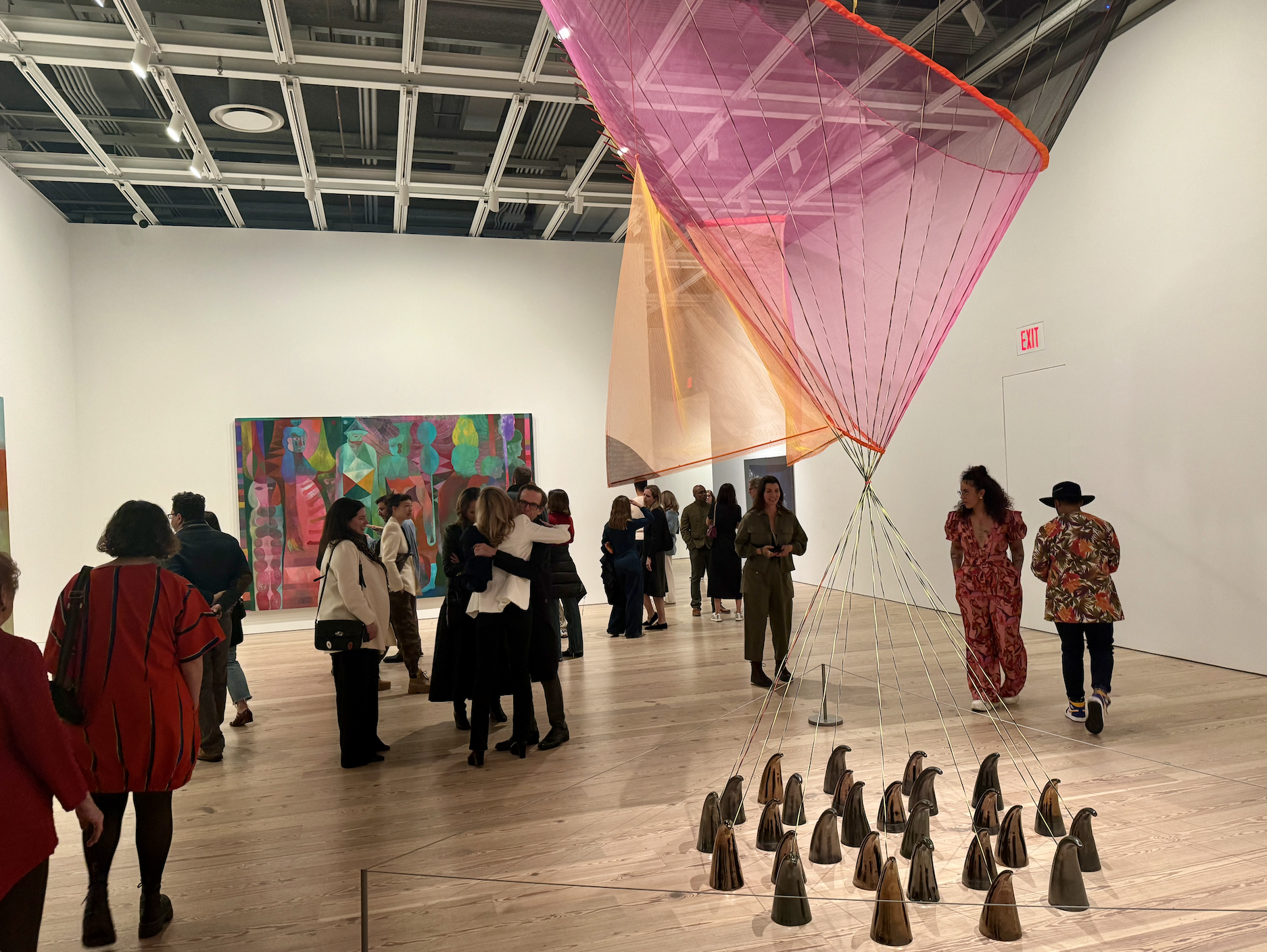
There are two things you can usually expect at the Whitney Biennial opening night party. One: a cluster of protestors outside the door, shaming well-heeled donors as they walk inside. And two: a healthy dose of conversations about the biennial’s various shortcomings.
But this seems to be an exceptional year. No protests were spotted on Tuesday night at the museum and the early chatter seems to be largely positive.
“I like the flow of it better,” New York dealer Tara Downs told me at the opening reception on Gansevoort Street. “Without the bifurcated black and white walls like the past few years, it makes it more digestible.” Indeed, the line of the night seemed to be that the “pared-down” curation by Chrissie Iles and Meg Onli was refreshing compared to previous years.
People were having fun. While on line to view Jes Fan’s winding installation Cross Section (Right Leg Muscle II), Art Intelligence Global founder Amy Cappellazzo told me that Fan’s dealer, Andrew Kreps, had joked to her when she walked in the door, “Go check it out, I have a booth upstairs!”
And while there were no chants of “ANDY WARHOL, ALICE NEEL. $17 PER HOUR, ARE YOU FOR REAL?” (the museum struck an agreement with its union last spring), it wouldn’t be a Whitney Biennial without some dissidence.
Zach Feuer, the dealer-turned-Forge Project co-founder, pointed out that Portland-based artist Demian Diné Yazhi appears to have embedded a hidden message in their bright-red, blinking neon piece, which faces out toward the Hudson River. The work, titled we must stop imagining apocalypse/genocide+we must imagine liberation, bears nine lines of political poetry, and when its letters blink, a few remain fully lit, spelling out “FREE PALESTINE,” if you look closely.
In the museum’s lobby, artists Raúl de Nieves, Ambera Wellmann, Jamian Juliano-Villani, Adam Alessi, Lucien Smith, and Andres Serrano mingled with industry stalwarts like dealers Mary Boone and David Zwirner and Studio Museum chief Thelma Golden. But notably absent from the festivities was the Whitney’s director, Scott Rothkopf, who posted to Instagram from Texas, announcing the arrival of a daughter (mazel tov, Scott!).
Palomas were the cocktail of choice for the evening, and around 10 p.m., the museum brought out shot glasses of hot chocolate. “Why?” writer Dalya Benor exclaimed on the dance floor, where Cardamami was DJing. “It’s like 8,000 degrees in here!”